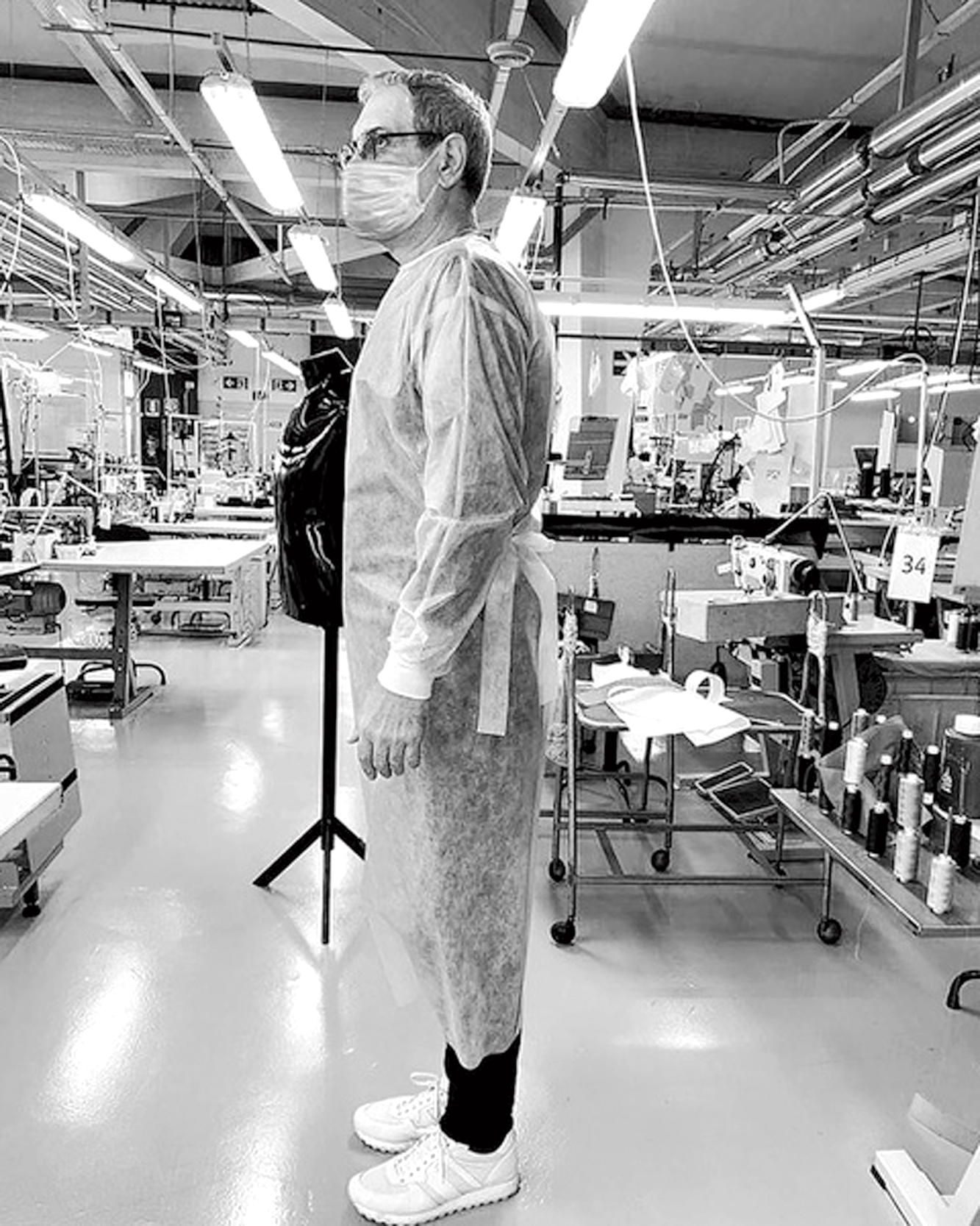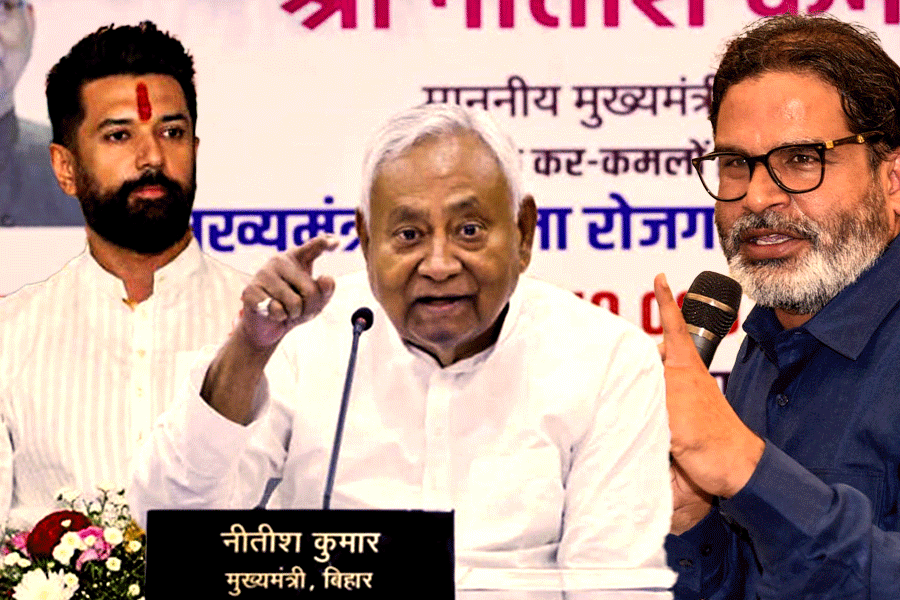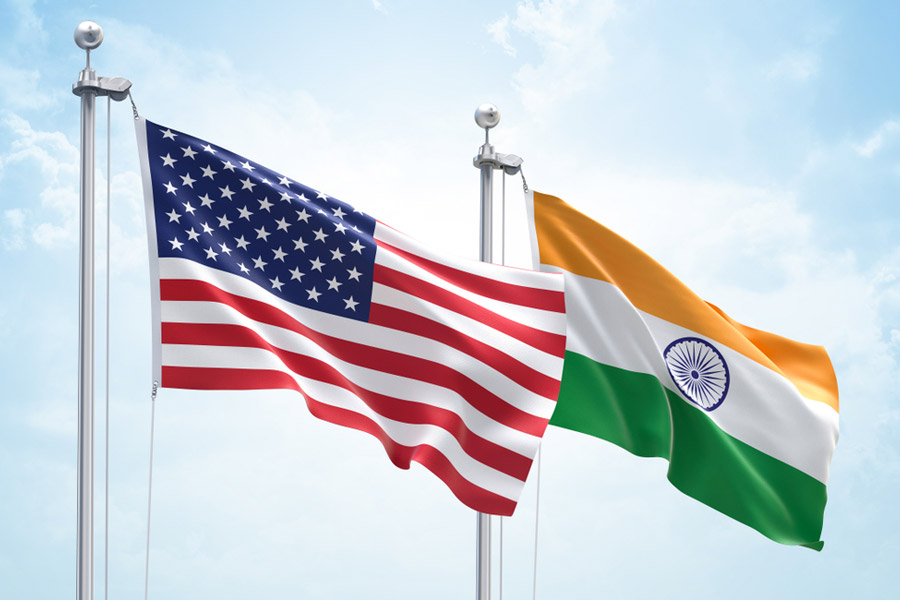Italy, the epicentre
Let’s start with Italy, which till only a couple of months back, was just wrapping up Milan Fashion Week and was considered to be one of the epicentres of luxury fashion in the world. Cut to March and the narrative had altered dramatically with Italy becoming the epicentre of Covid-19 in Europe (1,15,242 confirmed positive cases and 13,915 deaths, as of April 3). But luxury fashion brands such as Gucci and Prada have taken the lead in doing what they can to help change this narrative. In a letter written by Marco Bizzarri, CEO of GUCCI and Alessandro Michele, creative director, GUCCI, they say: “This pandemic calls us to an unexpected task, but it is a call to which we respond decisively, advocating the selfless work being carried out by health professionals, doctors and nurses who are working on the front lines to help those affected by the outbreak of the Covid-19 virus, particularly in our home country of Italy and around the world.”
In a global economy where consulting firm Boston Consulting Group has pegged a decline in sales for luxury brands at between $85 and $120 billion in 2020 (29.2 per cent of the $350 billion luxury market), GUCCI has kickstarted “two crowd-fundraising campaigns with a further donation of €2 million” — €1 million to support the National Civil Protection Department in Italy in partnership with Intesa Sanpaolo; the other €1 million to the COVID-19 Solidarity Response Fund, with the World Health Organization, through a Facebook campaign. This is in addition to 1,100,000 surgical masks and 55,000 medical overalls and donations already been made by “our group Kering to organisations in China, Italy and France”. Donatella and Allegra Versace have pledged €200,000 in personal donations, apart from $500,000 on behalf of the brand. In Milan, Prada has pledged to fund the intensive care operations in three hospitals.
This is an unprecedented time that has brought to life all these adages that can be applied to us so strongly now. They say that the worst of times also bring out the best in people and that’s what we gotta do now,” said Tarun Tahiliani when I called him up for this story, just a few days ago. At this unprecedented juncture in time when we are plagued with a pandemic and, by virtue of that, inexplicable existentialism about everything we do, a sense of solace can come from anywhere at all. And for those sartorially stimulated individuals, it does not harm whatsoever if it comes from fashion — not in the form of ornamentation but in the form of how the fashion industry worldwide has come out in support of a world in crisis in their own little to big ways.
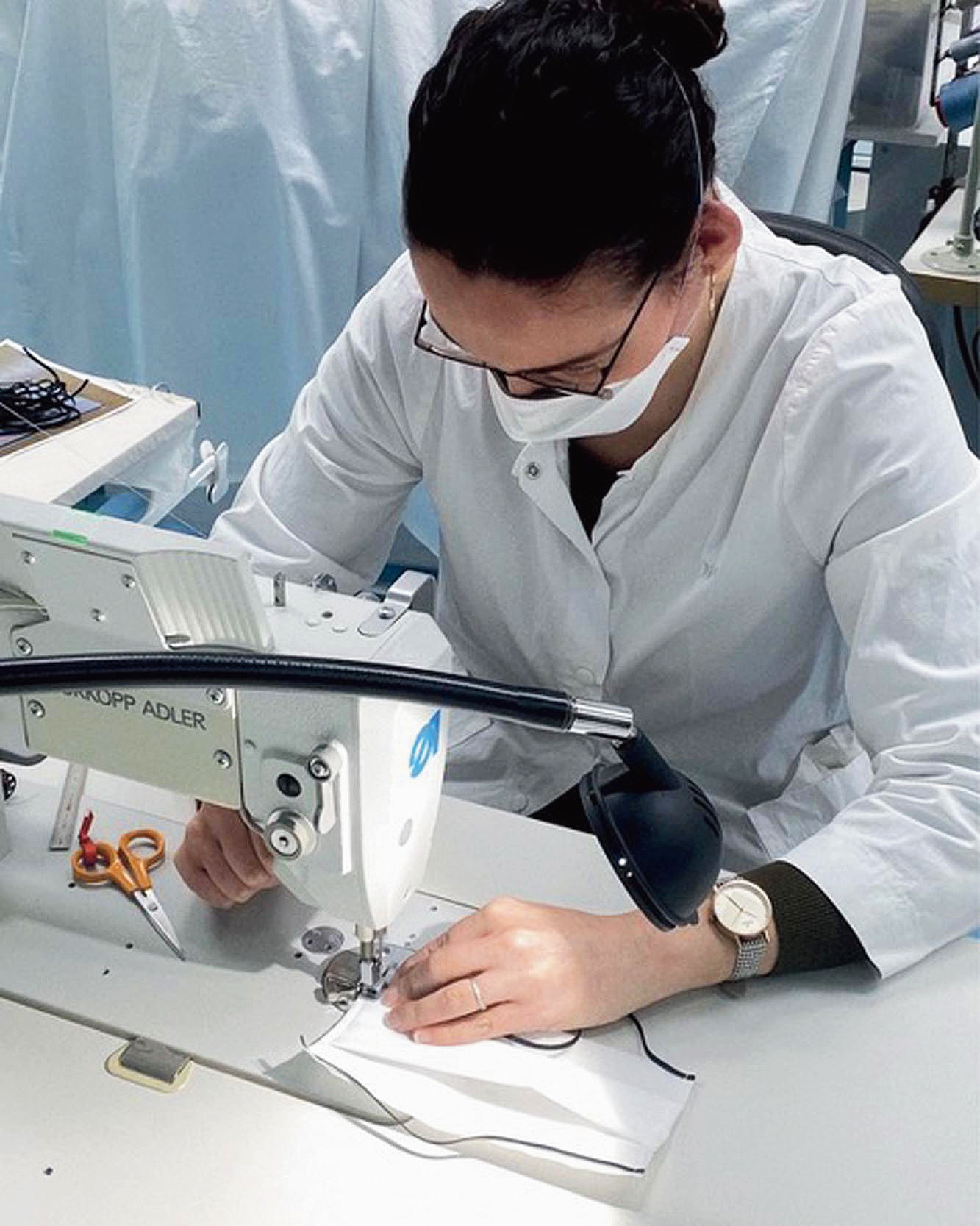
Masks being made at a Baby Dior factory Pictures sourced from designers/design houses and Instagram
The world over
Coming to the rest of the world, French luxury brand LVMH has pledged to repurpose their resources to produce anti-bacterial hand gel and donate masks for their country of origin. While under Kering, Balenciaga and Saint Laurent are also expected to start producing protective medical gear at their workshops, after receiving due clearances; Burberry’s Yorkshire factory is expected to produce medical paraphernalia for donation to UK’s National Health Service. And it does not just end here with the list also including brands such as Jimmy Choo, Michael Kors, Bulgari, Chanel, Mango, Zara and H&M.
MAC Cosmetics is also not far behind. “The VIVA GLAM efforts are only made possible by the continuous support of the MAC community and those who purchase a Viva Glam lipstick, of which 100 per cent of the proceeds goes towards these local organisations,” said long-time VIVA GLAM global ambassador, Miley Cyrus, in a statement made available through the brand. Through this, the cosmetic company plans to donate $10 million to 250 local organisations across the globe.
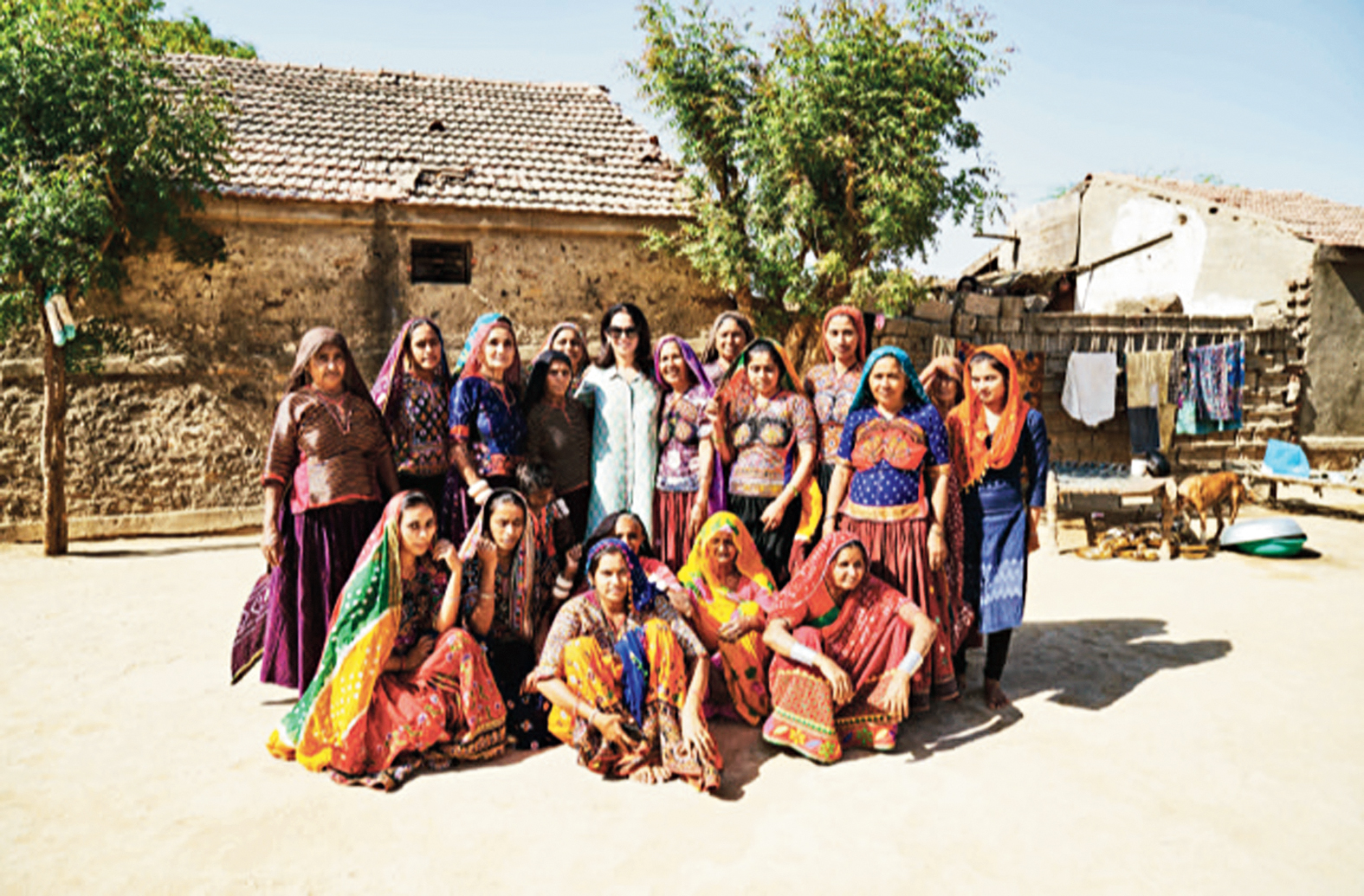
Anita Dongre with a few artisans whom she works with, in happier times Pictures sourced from designers/design houses and Instagram
On Indian shores
Closer home, things are a tad trickier because of the sheer number that makes up our unorganised sector of labourers. With each fashion label having a range of people such as workers, craftsmen and kaarigars, under their belts, apart from the rest of the staff, Indian designers are faced with the gargantuan task of securing the livelihoods of many, especially in a climate where haunting images of migrant labourers have been etched in our collective psyche.
In a post dated March 21, Sabyasachi Mukherjee, perhaps, summed up what the Indian fashion industry is looking at, as he said: “As an entrepreneur, I can tell you it’s a frightening and lonely situation to be in, with no revenue and continued expenditures… I am not saying this to be an alarmist or to instil fear. Rather, to emphasise what we all must acknowledge is most important — compassion, integrity, and respecting the value of human life.” Apart from securing his own (2,742 skilled and unskilled workers), he has pledged Rs 1 crore to the Prime Minister’s National Relief Fund and another Rs 50 lakh to the West Bengal chief minister’s relief fund.
Tahiliani, on the other hand, has started taking action from the ground level with his Khandsa (Gurgaon) factory, along with two others in the vicinity, having started kitchens to feed about a 1,000 people every day of the nationwide lockdown. “If we all do our bit in the area that surrounds us, then cumulatively you build a culture, as opposed to grand, sweeping statements and dekchi-banging that won’t really change anything,” the designer said.
“Anybody we lay off now will not get a job so there’s no question of laying off anyone. I am taking a cut and the whole idea is to stretch our resources as much as possible and then start building from there. Actually, I am going to tell you that my company is going to be a lot stronger because I have had so much time to think about what I am doing right or wrong — I am going to be much more focused as we have no choice now,” Tahiliani told me from Delhi, even as he made his way to his Gurgaon factory to pick up his chequebook in order to pay his employees (around 1,000 full-time apart from about 300 in other units) and got stopped by cops. “It’s like navigating a war zone with the lockdown but salaries have to be paid. Nonetheless, the cops are doing an excellent job of implementing the lockdown,” he added after getting back on the phone with me. “In the long run, we have to change the way we live and we have to think Indian and buy Indian… it’s going to be very rough as we are in a free fall and anyway there’s so much of disguised unemployment in India, apart from the usual. I hope after all this, people start buying better, finer and lesser. I always keep saying that it’s always the darkest before dawn and since we are crash-landing anyway, we have to make the best of it,” the veteran designer added.
Addressing the overturn and upheaval of interactions and consumptions in the present climate, designer Anita Dongre’s eponymous foundation has taken steps to cover those at the fringes of their ecosystem who lack medical insurance. “To help deal with the current crisis, we have set up an emergency medical fund of Rs 1.5 crore for all our self-employed vendors and independent artisans who have been associated with us and may not have adequate medical coverage. Our direct employees and their families are covered by medical insurance but should they need more, we’ll extend the fund to them as well,” the designer told t2. Dongre, like Sabyasachi and Tahiliani, has also been sharing real-life stories of positivity on her Instagram account.
After having to postpone their fashion week, The Fashion and Design Council of India (FDCI) has also set up the Covid-19 Support Fund, as chairman Sunil Sethi said: “We started this initiative a week ago where the seed money was put in by the board members and we were encouraged by certain eminent designers who also offered some support without us seeking support. Support to the cause started coming from all the directions, including non-industry members as well. It is a joint effort, started by the FDCI where we have got support from the LFW (Lakme Fashion Week) team and we are happy about that.”
Delhi-based label Bhaane, which emphasises on street culture, has taken the lead to look after stray animals and has pledged to donate “100 per cent of their e-shop profits” to Delhi-based animal welfare non-profit Friendicoes. Bhaane’s Anand Ahuja kept it as real and straightforward as always, and said: “Anyone that can’t read the signs, that doesn’t use this opportunity to learn, grow and reposition to contribute to making sure the stars keep shining, is not going to make it out. Look outside. Look at all those struggling. We’ve let the gap grow too large and just like we must take care of nature from a business point of view, we must also ensure that we close this gap from a humanitarian point of view. Whatever you can do, your company can do, you must. It is our responsibility. The Bhaane team spoke internally about what mattered most as a group and we picked where we will contribute as a group. I know everyone is doing the same.”
Fresh after introducing their pret label, Genes, through an exclusive store in Calcutta, designers Hemant Sagar and Didier Lecoanet of Lecoanet Hemant are also part of the design fraternity looking to extend a helping hand. “The brand has reached out to the ministry of textiles via a legally formulated appeal with regard to a relief package for the textile and design industry of India. Additionally, we are also helping with many things at a personal level within the community and working on an information campaign with Singularity University,” said the duo.
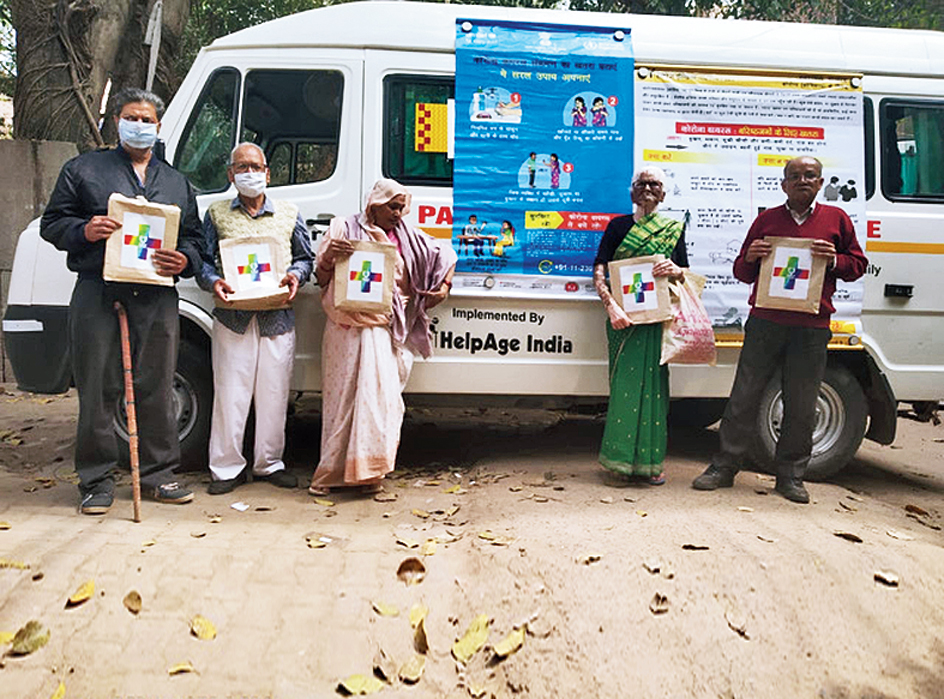
Recipients of health kits by footwear brand Fizzy Goblet Pictures sourced from designers/design houses and Instagram
Meanwhile, fashion label AM:PM were quick to address concerns such as the shortage of masks and sanitisers for their workers, even as the crisis had just started unfolding in India, long before the lockdown. “A few weeks ago when the panic around the COVID-19 set in, we noticed an acute shortage of masks. Our HR team also realised that even after their best efforts, the factory workers and lower-level staff weren’t being able to procure masks from the market. So, rather than hopelessly wait for the masks to appear over the counter, we quickly decided to manufacture them at our factory. We then distributed them with proper care instructions to our employees, making sure they have this important protection tool from this deadly virus. We had also arranged for medical-grade sanitisers and put in processes where it was then mandatory for every single person working in our organisation to sanitise their hands every hour. All of this, of course, was done before we finally announced complete closure of the stores and offices (even before the government made it mandatory) and decided to work from home. Since then, we’ve been regularly checking in with all our employees to ensure their well-being. We have also set up a dedicated helpline for our employees if they need anyone to speak to for help and guidance in navigating this situation,” explained creative director of AM:PM, Priyanka Modi, as she listed the ways they have ensured protection for their work force.
Designer footwear brand Fizzy Goblet has also not shied away from doing what they can to help. Laksheeta Govil of Fizzy Goblet told us: “We created health kits, which included essential items such as sanitisers, handwash, preventive masks, Vitamin-C and paracetamol tablets for those who need it the most but don’t have access to it. Along with the help of an NGO called Help Age India, we have served over 200 people.”
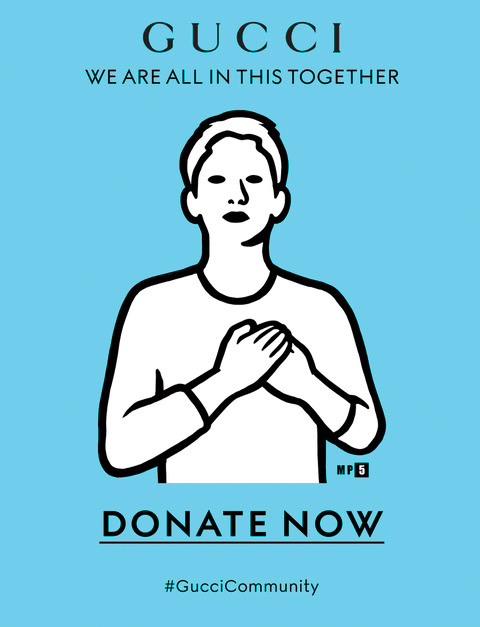
Gucci’s online crowd-funding campaign’s illustration, which has been gifted by Italian artist, MP5 Pictures sourced from designers/design houses and Instagram
A fashionable epilogue
With little to no knowledge about how the global pandemonium surrounding the pandemic will end and with an even more uncertain road to recovery, perhaps the only concrete thing to yield any result is compassion through our collective conscience. To every fashion enthusiast who has now lost faith in what their wardrobes hold, may we all find faith in knowing how the design fraternity has united to give Covid-19 a run for its virulence; and as Elsa Schiaparelli, while leaving her mark in fashion during an equally difficult time between the World Wars, said: “In difficult times, fashion is always outrageous!”

